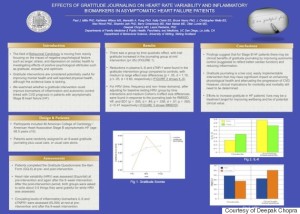 By Deepak Chopra, MD, Rudolph E. Tanzi, PhD
By Deepak Chopra, MD, Rudolph E. Tanzi, PhD
Genetics may be on the verge of solving a very complex question in a revolutionary but quite simple way. The question is, What does it take to be happy? The question never goes away. It hangs over our heads every day. The possible answers are many, but they follow two general trends whose results, frankly, have been disappointing. One trend is psychological, holding that happiness is an emotional state. The other trend is philosophical, holding that happiness is a mental state. When someone is unhappy, psychologists aim to improve their mood, largely by addressing anxiety, depression, and various psychological wounds from the past. A philosopher, on the other hand, would examine the underlying idea of happiness itself and why it is or isn’t feasible. In the end, happiness is all about health and wellbeing.
Yet after thousands of years of deep thinking and a hundred years of psychotherapy, the condition that the vast majority of people find themselves in is marked by total confusion. We muddle through on a wobbly combination of wishful thinking, hope, bouts of high and low spirits, denial, family ties, love, distraction, and the constant pursuit of external pleasures, as if happiness can be cobbled together more or less randomly.



 There’s always a sense of crisis in the air generated by whatever bad news is making the headlines. At the moment, the greatest alarm is being stirred by terrorism and the spread of Islamic extremism. Yet at a deeper level, our anxiety centers on something much deeper, the possibility that the human experiment has reached a dead end. A set of enormous problems face us, from climate change and overpopulation to epidemic disease and global water shortages, that test the limits of human nature.
There’s always a sense of crisis in the air generated by whatever bad news is making the headlines. At the moment, the greatest alarm is being stirred by terrorism and the spread of Islamic extremism. Yet at a deeper level, our anxiety centers on something much deeper, the possibility that the human experiment has reached a dead end. A set of enormous problems face us, from climate change and overpopulation to epidemic disease and global water shortages, that test the limits of human nature.